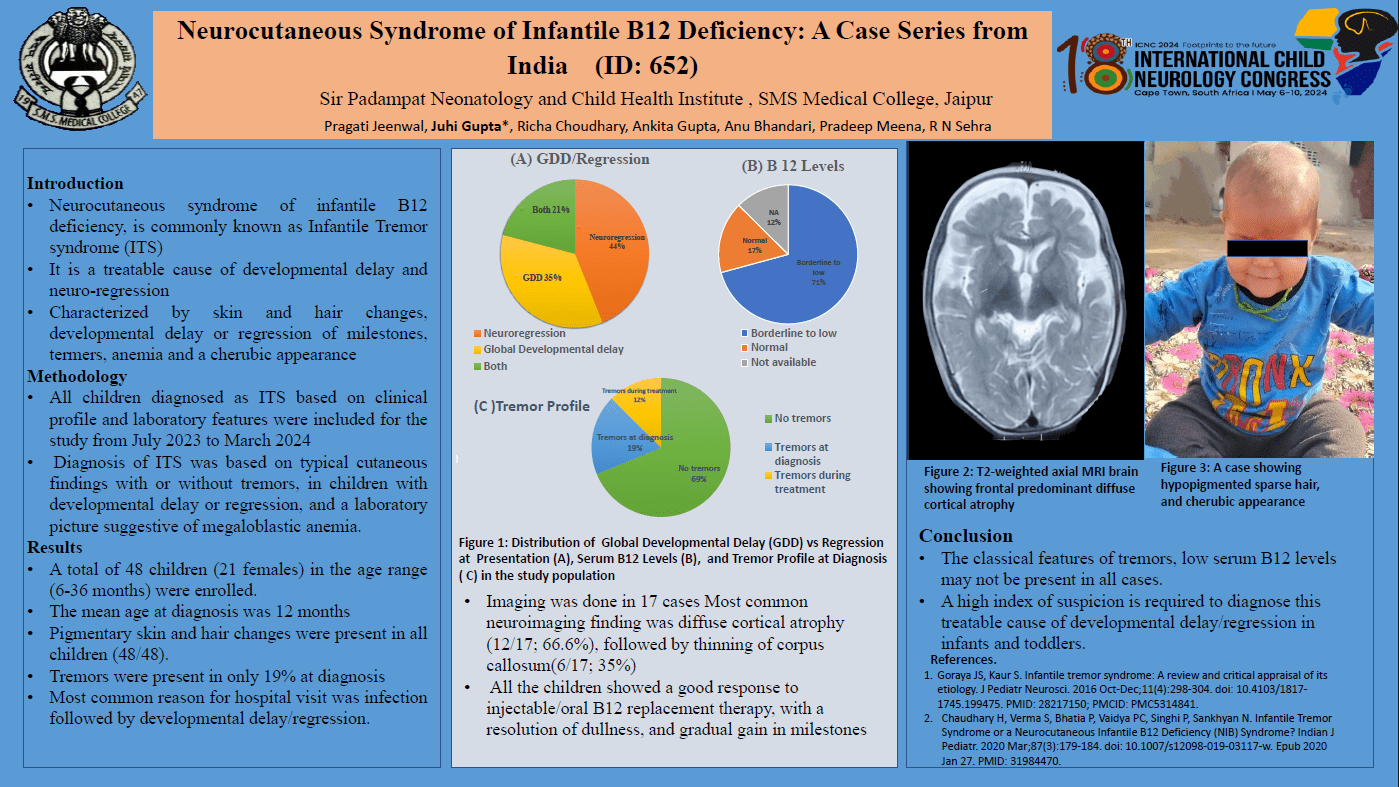Neurocutaneous Syndrome Of Infantile B12 Deficiency: A Case Series From India
Introduction – Neurocutaneous syndrome of infantile B12 deficiency, commonly known as infantile tremor syndrome (ITS) is a treatable cause of developmental delay and neuro-regression. Methodology – All children diagnosed as ITS based on clinical profile and laboratory features were included for the study. Diagnosis of ITS was based on typical cutaneous findings with or without tremors, in children with developmental delay or regression, and a laboratory picture suggestive of megaloblastic anemia. Results- A total of 26 children (12 females) in the age range (6-36 months) were enrolled. The mean age at diagnosis was 12.3 months. Majority (57.6%) presented with neuro-regression (most common symptom was dullness), while 42.3% were presented with global developmental delay, without any regression. 84.6 % cases (22/26) had low serum B12 levels. Serum homocysteine was elevated in 3 cases with normal B12 levels, while B12 levels were not available for one case. Tremors which form a classical part of clinical picture were present in only 15.3 % cases at diagnosis. 11.5 % children developed tremors after B12 replacement. All the children showed a good response to injectable/oral B12 replacement therapy, with a resolution of dullness, and gradual gain in milestones. Most common neuroimaging finding was diffuse cortical atrophy (8/14; 57%), followed by delayed myelination (2/14; 14.2%). Conclusion- Tremors and low serum B12 levels may not be present in all cases of ITS. A high index of suspicion is required to diagnose this treatable cause of developmental delay/regression in infants and toddlers
Pragati Jeenwal
SMS medical college
India
Juhi Gupta
SMS Medical college
India
Richa choudhary
SMS Medical College
India
Ankita Gupta
SMS Medical College
India
Anu Bhandari
SMS Medical College
India
Pradeep Meena
SMS Medical Colllege
India
RN Sehra
SMS Medical College
India

Juhi Gupta
SMS Medical college
India